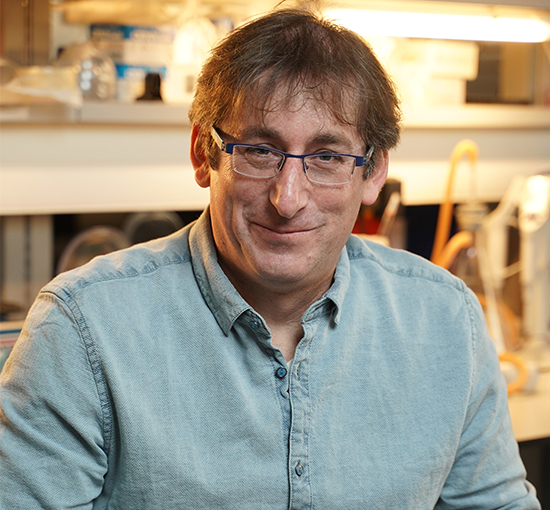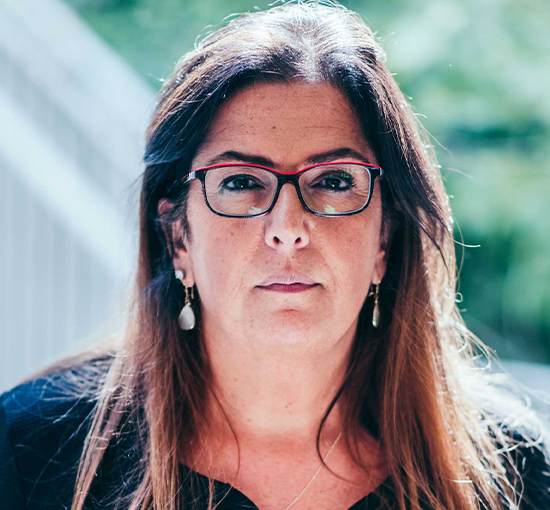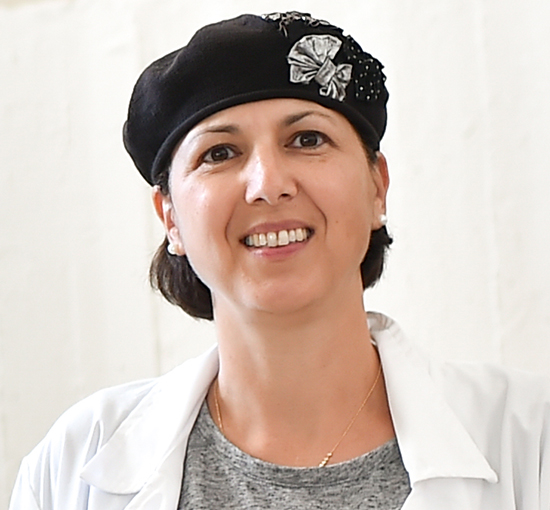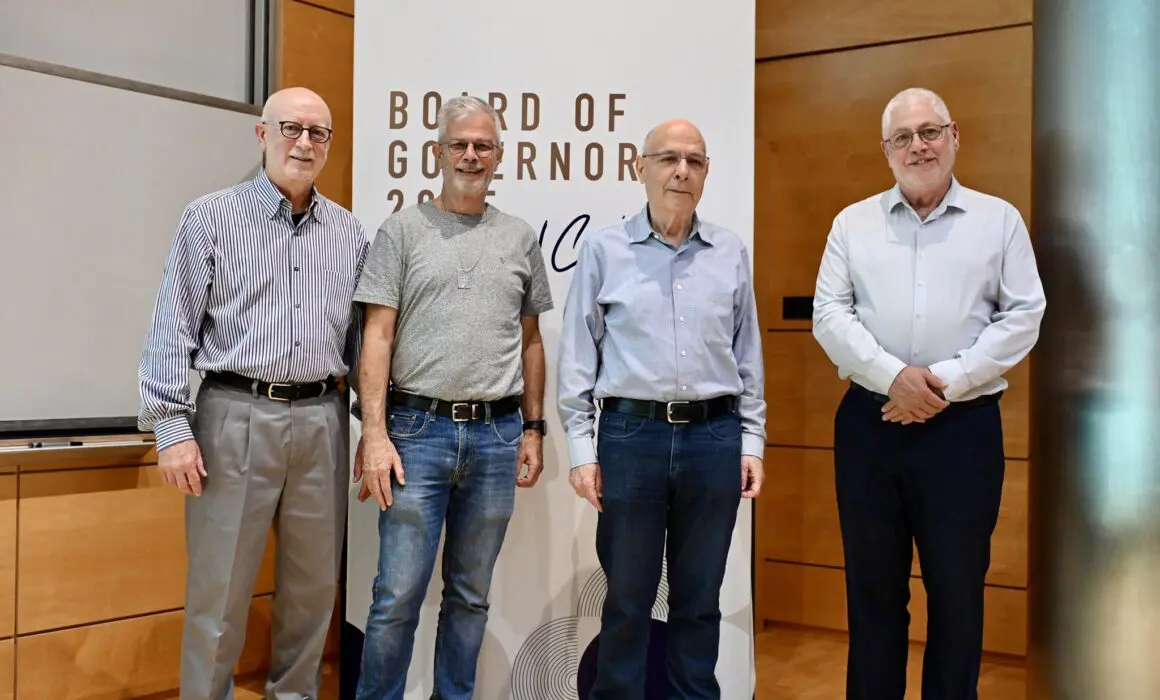Women Leaders at the Technion
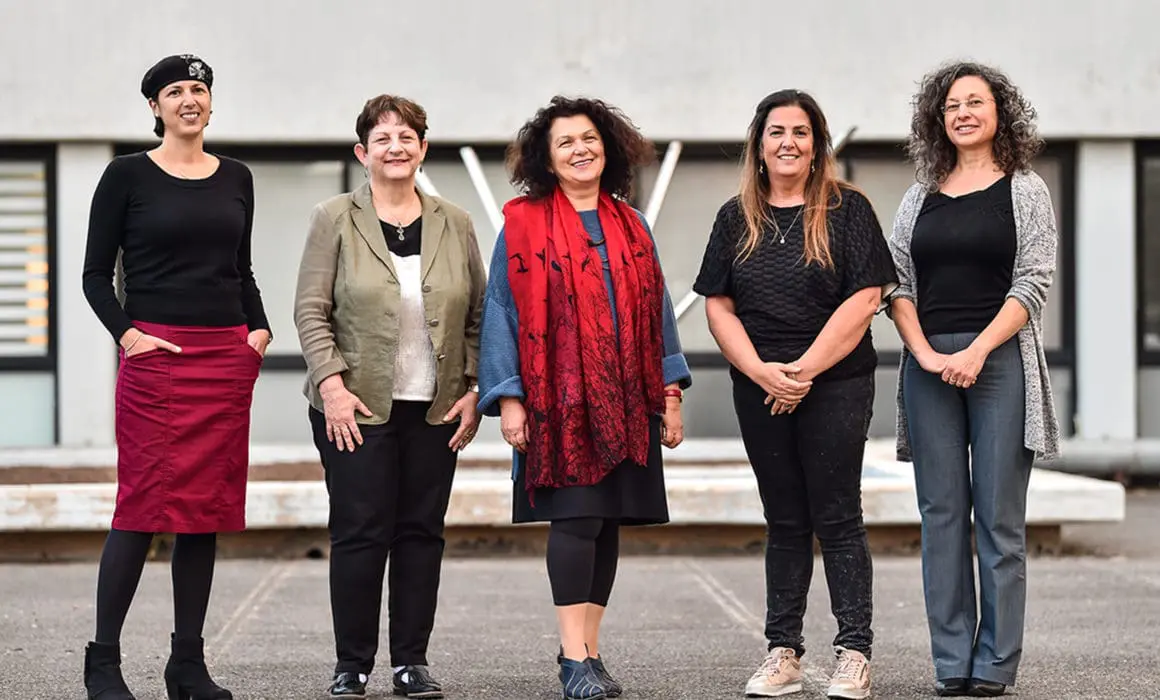
Pictured above: Prof. Shulamit Levenberg, dean of the Technion Faculty of Biomedical Engineering; Prof. Yehudit Dori, dean of the Faculty of Education in Science and Technology; Prof. Iris Aravat, dean of the Faculty of Architecture and Town Planning; Prof. Marcelle Machluf, dean of the Faculty of Food Engineering and Biotechnology; and Prof. Orit Hazzan, dean of Graduate Studies
How can medical patients possibly be cured by a sugar pill?
It is famously known as the placebo effect — medical benefits that cannot be attributed to the properties of a treatment itself, and are therefore the result of the patient’s belief in the treatment. The public and the medical community have long been confounded by this phenomenon. But Assistant Professor Asya Rolls, a member of the Technion’s Rappaport Faculty of Medicine and head of the Rolls Lab, is beginning to solve the mystery.
Understanding that a specific section of the brain — the reward system — is activated when people have positive expectations, Rolls and Assistant Prof. Shai Shen-Orr conducted research that showed how activation of the reward system boosts anti-bacterial immune response. The discovery, according to Rolls, has practical implications such as the development of therapeutic techniques like trans-cranial magnetic stimulation or video games that activate specific brain regions to control the immune system and strengthen its ability to cure disease.
Rolls is just one of the trailblazing women of the Technion, which has five female deans, a record for academic institutions in Israel. These women are key drivers of the world-changing innovation that is produced at the Technion and exported across the globe.
Prof. Shulamit Levenberg, dean of the Technion Faculty of Biomedical Engineering; Prof. Yehudit Dori, dean of the Faculty of Education in Science and Technology; Prof. Iris Aravat, dean of the Faculty of Architecture and Town Planning; Prof. Marcelle Machluf, dean of the Faculty of Food Engineering and Biotechnology; and Prof. Orit Hazzan, dean of Graduate Studies
One of those women is Prof. Shulamit Levenberg, dean of the Faculty of Biomedical Engineering and the Stanley and Sylvia Shirvan chair in cancer and life sciences. Her lab combines knowledge from cellular biology, tissue engineering, and mechanical engineering to investigate and understand the formation of vascular networks in three-dimensional constructs, with the goal of creating breakthroughs in stem-cell therapy as well as organ and tissue regeneration. For instance, the lab investigates the transplantation of stem cells as a method for regenerating tissue and in the treatment of spinal cord injuries. Levenberg also leads the Rina and Avner Schneur Center of Diabetes Research, which focuses on the development of a cure for type 2 diabetes that’s based on transplanting engineered tissue.
Prof. Marcelle Machluf, dean of the Technion’s Faculty of Food Engineering and Biotechnology and director of the Laboratory for Cancer Drug Delivery & Cell Based Technologies at the Technion Integrated Cancer Center, harnesses biological and engineering knowledge and expertise to design novel medical solutions through drug and gene delivery, cell-based and cell-free therapies, and biomedical and tissue engineering. The lab is pioneering the use of “nano-ghosts” (naturally targeted drug and gene delivery systems) in the fight against cancer.
The Technion’s commitment to women’s empowerment extends far beyond its five female deans. The university is striving to achieve 50/50 gender balance across its faculty, administration, and student body.
“Technion achievements result from fostering excellence,” says Prof. Orit Hazzan, dean of undergraduate studies. “It is not about a specific gender or any other specific characteristic. In this spirit, the Technion enables the success of its faculty members neither as women or men, but, rather, as researchers in science and engineering, providing all of them with the same working conditions.”
We have made tremendous progress towards this goal. The percentage of women in the Technion’s original class in 1924 was 0.06 percent — just one of 17 students. Today, the female portion of the Technion’s student body is an all-time high 40 percent, and women make up 42 percent of the university’s doctoral students.
At the same time, the Technion still has a long way to go before achieving complete balance. The average observer might think it will take us decades to get there, or even claim that we will never achieve this objective.
Yet when pursuing lofty goals, it is instructive to remember Prof. Roll’s research. The placebo effect teaches us that our thoughts and expectations have the power to cure. Similarly, we must have a confident and ambitious attitude in our quest to shatter glass ceilings and achieve the previously impossible. That is precisely the Technion’s mindset as an institution.
As Rolls says when describing her research, “There is huge potential embedded in ourselves, we just need to understand it to harness it.”
More About
More Visionary Education stories

Cornell Tech Hosts First-Ever Summit on Disability, Access, and AI

